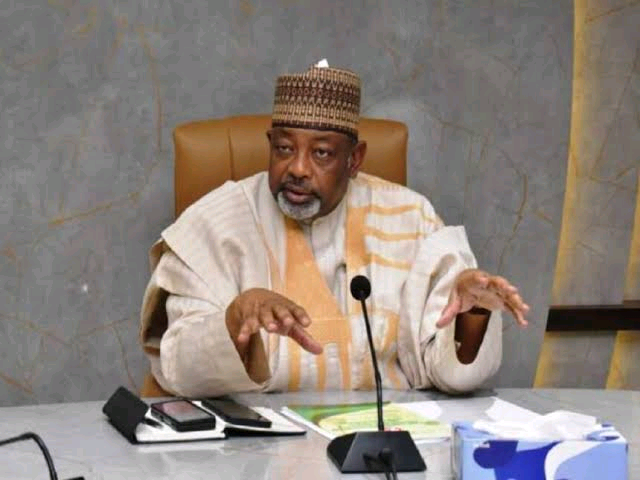From Atiku Sarki, Abuja
The Federal Ministry of Agriculture and Food Security has dismissed media reports claiming it scheduled a three-day prayer session to address the country’s worsening food security challenges.
In a statement issued on behalf of the Director of Information, Mr Ezeaja Ikemefuna clarified that the alleged prayer programme was not a ministerial policy but an internal initiative by the Human Resource Management Department.
“The attention of the Ministry has been drawn to an internal circular being circulated by online media. The circular pertains to a prayer session organised by the Human Resource Department to address staff wellbeing,” the statement said.
“It is not an official policy of the Ministry to address agricultural or food security issues through prayer sessions,” it added.
According to the ministry, the prayer programme was introduced in response to the recent spate of untimely deaths among senior management staff, which had created unease within the organisation.
The statement explained that the prayer session was no different from other welfare activities initiated for staff wellbeing, such as monthly aerobic exercises, the establishment of a gymnasium, and regular medical check-ups.
The theme of the prayer session—“Divine Intervention for Protection and National Development”—also included prayers for the nation. However, the ministry stressed that this was not a replacement for the ongoing policy and infrastructural measures aimed at ensuring food and nutrition security.
Reaffirming its commitment to the Renewed Hope Agenda of President Bola Tinubu, the ministry said it had stepped up interventions to improve agricultural productivity and reduce food inflation across the country.
It disclosed that over 1,000 tractors had been procured to support mechanised farming, while strategic efforts were made to stabilise food prices through the release of 42,000 metric tonnes of grains and an additional 58,200 metric tonnes of milled rice under the Strategic Grain Reserve programme.
In addition, the Central Bank of Nigeria donated 2,150,000 bags of fertilisers to the ministry, which were distributed to farmers to mitigate rising food prices.
The Federal Government has also approved the recapitalisation of the Bank of Agriculture to the tune of N1.5 trillion—one of the largest financial interventions in the sector—to increase farmers’ access to affordable credit.
The ministry highlighted the launch of the National Electronic Extension Platform (NEEP), a digital initiative designed to improve the reach and efficiency of agricultural extension services nationwide.
In a bid to revitalise cooperative societies, the ministry said it had organised capacity-building workshops at Federal Cooperative Colleges in both the North and South, aimed at strengthening their role in economic development and rural empowerment.
Furthermore, in partnership with the World Bank, the ministry earmarked $600 million for the rehabilitation of 200,000 kilometres of rural roads under the Rural Access and Agricultural Marketing Project (RAAMP), which seeks to improve market access for farmers and reduce post-harvest losses.
To support farmers during the planting season, the ministry said it procured and distributed free essential agricultural inputs, including fertilisers, agrochemicals, seeds, and other materials.
It also noted that thousands of farmers have benefited from the National Agricultural Growth Scheme Agro-Pocket (NAGS-AP), which provides subsidised farm inputs to boost production.
Efforts are also underway to strengthen transparency and data management in the sector. The ministry is collaborating with the National Identity Management Commission (NIMC) to verify farmers’ identities and enhance access to government interventions and services.
“The Ministry wishes to emphasise that the prayer session is an internal welfare initiative intended to address concerns over recent staff deaths and not a strategy for tackling food insecurity,” the statement concluded.


